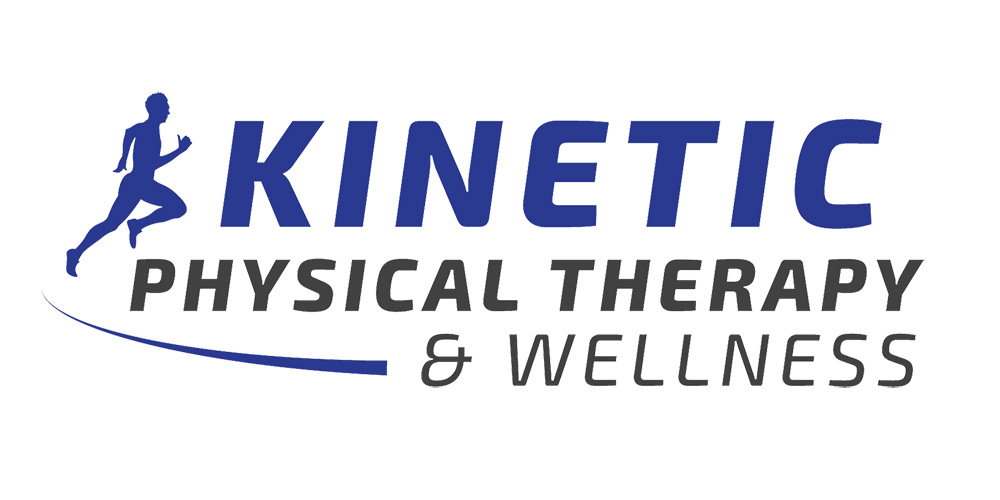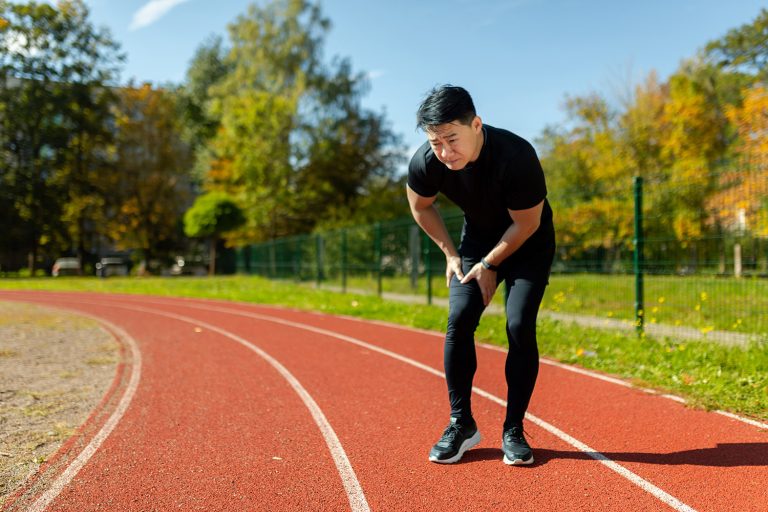

Mental Conditioning for Athletes: Why Mindset Training is the Missing Link in Performance
Nutrition in athletic training is a key component of physical performance—but what fuels the mind? While proper physical conditioning, recovery, and fueling are essential for athletic success, mental conditioning is often the overlooked element that separates good athletes from elite performers. At Kinetic Physical Therapy and Wellness in Greenville, NC, we believe mental resilience, focus, and confidence are just as important as strength and endurance. That’s why our sports performance programs incorporate mindset training alongside physical and nutritional development.
By integrating mental conditioning into an athlete’s training routine, we help them unlock a new level of consistency, motivation, and poise under pressure—crucial traits for peak performance and long-term success.
The Overlap Between Mental Conditioning and Nutrition in Athletic Training
Just as nutrition in athletic training provides the fuel for movement, mental training strengthens the athlete’s capacity to focus, regulate emotions, and overcome obstacles. Both are essential to executing strategy, maintaining energy levels, and staying calm under pressure. In fact, many symptoms of mental fatigue—low motivation, poor decision-making, and lack of concentration—can be influenced by both inadequate nutrition and weak mental conditioning.
At Kinetic, we take a holistic approach. We teach athletes how to fuel their bodies, sharpen their minds, and develop strategies for internal focus and mental recovery. It’s not just about what you eat or how you train—it’s how you think and respond in every moment that matters most on the field.
Why Mental Conditioning Matters in Sports Performance
The Brain-Body Connection
The connection between mental state and physical output is undeniable. Athletes with strong mental skills can block out distractions, stay composed in competition, and bounce back quickly from mistakes. In contrast, a lack of mental preparation can lead to self-doubt, anxiety, or underperformance—despite excellent physical conditioning or top-tier nutrition in athletic training.
Our sports performance program incorporates sports psychology strategies such as visualization, breath control, goal setting, and self-talk to help athletes prepare their minds as well as their muscles. These skills enable them to compete with confidence and recover faster from setbacks, both mentally and physically.
Components of Mental Conditioning at Kinetic
Building Focus and Clarity
One of the first steps in mental training is helping athletes improve focus. Distractions during practice, performance anxiety, and overthinking are common barriers to success. Our coaches teach athletes how to use mindfulness techniques, including breath work and grounding exercises, to stay present during both practice and competition.
This focus complements nutrition in athletic training, as both help stabilize energy levels and mental clarity. For example, an athlete who eats a balanced pre-game meal and uses a focus-reset breathing technique is more likely to stay sharp and composed in high-pressure situations.
Developing Resilience and Grit
Adversity is inevitable in sports. Whether it’s a tough loss, a performance plateau, or an unexpected injury, mental resilience determines how quickly an athlete rebounds. At Kinetic, we help athletes reframe setbacks as opportunities and build the grit necessary to persevere through challenges.
Just like nutrition in athletic training aids physical recovery, mental conditioning supports psychological recovery. We encourage journaling, reflection exercises, and progressive goal-setting to help athletes process experiences and stay committed to long-term development.
Cultivating Confidence Through Preparation
Confidence isn’t just something you have—it’s something you build. Confidence grows from consistent training, mental rehearsal, and physical preparation. Our team reinforces the idea that confidence is a skill, not a trait, and that it can be strengthened with practice.
Our sports performance model pairs mental readiness with proven physical techniques and personalized nutrition in athletic training to support every layer of athlete development. When athletes feel physically fueled and mentally prepared, they perform at their best.
The Role of Nutrition in Athletic Training and Mental Strength
How Fuel Affects Mood and Mindset
Mood swings, irritability, and mental fog are often overlooked symptoms of poor nutrition in athletic training. Blood sugar imbalances, dehydration, and low protein intake can all negatively affect concentration and motivation. That’s why our team ensures athletes understand the connection between what they eat and how they think.
We coach athletes on pre-workout fuel to stabilize energy, hydration protocols to avoid fatigue, and post-training meals that support not only muscle repair but also cognitive clarity. A well-nourished athlete has the mental capacity to stay focused, bounce back faster, and maintain discipline in the face of adversity.
Smart Habits That Support Consistency
The best athletes don’t just train hard—they train smart and recover well. Consistent sleep, hydration, and nutrition in athletic training support brain function, hormone regulation, and mental stamina. We integrate daily routines like morning mobility, mindfulness journaling, and nutrition tracking into our programs to help athletes build sustainable habits for body and mind.
By reinforcing these routines, we help athletes stay engaged, manage performance stress, and avoid burnout—key factors for long-term sports performance success.
Who Benefits from Mental Conditioning?
Every Athlete at Every Level
From youth athletes to adult competitors, everyone can benefit from stronger mental skills. Whether it’s staying composed during a penalty kick, recovering from an injury, or staying focused in the final moments of a race, mental conditioning provides the tools to manage pressure and perform consistently.
At Kinetic, we tailor our mental skills coaching to the athlete’s age, sport, and individual challenges. Our integrated approach combines personalized nutrition in athletic training, movement optimization, and mindset development to create well-rounded, resilient athletes.
Train the Mind. Fuel the Body. Perform at Your Best.
Mental conditioning is the missing link for many athletes—but it doesn’t have to be. When paired with effective strength training, recovery techniques, and strategic nutrition in athletic training, mindset coaching empowers athletes to compete with purpose, focus, and control.
At Kinetic Physical Therapy and Wellness, our sports performance programs are built to support the whole athlete. We believe peak performance comes from preparation—mentally, physically, and nutritionally. That’s why we go beyond reps and drills to build confident, resilient competitors from the inside out.
Please Share
categories
Recent Posts

Mental Conditioning for Athletes: Why Mindset Training is the Missing Link in Performance
Nutrition in athletic training is a key component of physical performance—but what fuels the mind? While proper physical conditioning, recovery, and fueling are essential for athletic success, mental conditioning is often the overlooked element that separates good athletes from elite performers. At Kinetic Physical Therapy and Wellness in Greenville, NC, we believe mental resilience, focus, and confidence are just as important as strength and endurance. That’s why our sports performance programs incorporate mindset training alongside physical and nutritional development.
By integrating mental conditioning into an athlete’s training routine, we help them unlock a new level of consistency, motivation, and poise under pressure—crucial traits for peak performance and long-term success.
The Overlap Between Mental Conditioning and Nutrition in Athletic Training
Just as nutrition in athletic training provides the fuel for movement, mental training strengthens the athlete’s capacity to focus, regulate emotions, and overcome obstacles. Both are essential to executing strategy, maintaining energy levels, and staying calm under pressure. In fact, many symptoms of mental fatigue—low motivation, poor decision-making, and lack of concentration—can be influenced by both inadequate nutrition and weak mental conditioning.
At Kinetic, we take a holistic approach. We teach athletes how to fuel their bodies, sharpen their minds, and develop strategies for internal focus and mental recovery. It’s not just about what you eat or how you train—it’s how you think and respond in every moment that matters most on the field.
Why Mental Conditioning Matters in Sports Performance
The Brain-Body Connection
The connection between mental state and physical output is undeniable. Athletes with strong mental skills can block out distractions, stay composed in competition, and bounce back quickly from mistakes. In contrast, a lack of mental preparation can lead to self-doubt, anxiety, or underperformance—despite excellent physical conditioning or top-tier nutrition in athletic training.
Our sports performance program incorporates sports psychology strategies such as visualization, breath control, goal setting, and self-talk to help athletes prepare their minds as well as their muscles. These skills enable them to compete with confidence and recover faster from setbacks, both mentally and physically.
Components of Mental Conditioning at Kinetic
Building Focus and Clarity
One of the first steps in mental training is helping athletes improve focus. Distractions during practice, performance anxiety, and overthinking are common barriers to success. Our coaches teach athletes how to use mindfulness techniques, including breath work and grounding exercises, to stay present during both practice and competition.
This focus complements nutrition in athletic training, as both help stabilize energy levels and mental clarity. For example, an athlete who eats a balanced pre-game meal and uses a focus-reset breathing technique is more likely to stay sharp and composed in high-pressure situations.
Developing Resilience and Grit
Adversity is inevitable in sports. Whether it’s a tough loss, a performance plateau, or an unexpected injury, mental resilience determines how quickly an athlete rebounds. At Kinetic, we help athletes reframe setbacks as opportunities and build the grit necessary to persevere through challenges.
Just like nutrition in athletic training aids physical recovery, mental conditioning supports psychological recovery. We encourage journaling, reflection exercises, and progressive goal-setting to help athletes process experiences and stay committed to long-term development.
Cultivating Confidence Through Preparation
Confidence isn’t just something you have—it’s something you build. Confidence grows from consistent training, mental rehearsal, and physical preparation. Our team reinforces the idea that confidence is a skill, not a trait, and that it can be strengthened with practice.
Our sports performance model pairs mental readiness with proven physical techniques and personalized nutrition in athletic training to support every layer of athlete development. When athletes feel physically fueled and mentally prepared, they perform at their best.
The Role of Nutrition in Athletic Training and Mental Strength
How Fuel Affects Mood and Mindset
Mood swings, irritability, and mental fog are often overlooked symptoms of poor nutrition in athletic training. Blood sugar imbalances, dehydration, and low protein intake can all negatively affect concentration and motivation. That’s why our team ensures athletes understand the connection between what they eat and how they think.
We coach athletes on pre-workout fuel to stabilize energy, hydration protocols to avoid fatigue, and post-training meals that support not only muscle repair but also cognitive clarity. A well-nourished athlete has the mental capacity to stay focused, bounce back faster, and maintain discipline in the face of adversity.
Smart Habits That Support Consistency
The best athletes don’t just train hard—they train smart and recover well. Consistent sleep, hydration, and nutrition in athletic training support brain function, hormone regulation, and mental stamina. We integrate daily routines like morning mobility, mindfulness journaling, and nutrition tracking into our programs to help athletes build sustainable habits for body and mind.
By reinforcing these routines, we help athletes stay engaged, manage performance stress, and avoid burnout—key factors for long-term sports performance success.
Who Benefits from Mental Conditioning?
Every Athlete at Every Level
From youth athletes to adult competitors, everyone can benefit from stronger mental skills. Whether it’s staying composed during a penalty kick, recovering from an injury, or staying focused in the final moments of a race, mental conditioning provides the tools to manage pressure and perform consistently.
At Kinetic, we tailor our mental skills coaching to the athlete’s age, sport, and individual challenges. Our integrated approach combines personalized nutrition in athletic training, movement optimization, and mindset development to create well-rounded, resilient athletes.
Train the Mind. Fuel the Body. Perform at Your Best.
Mental conditioning is the missing link for many athletes—but it doesn’t have to be. When paired with effective strength training, recovery techniques, and strategic nutrition in athletic training, mindset coaching empowers athletes to compete with purpose, focus, and control.
At Kinetic Physical Therapy and Wellness, our sports performance programs are built to support the whole athlete. We believe peak performance comes from preparation—mentally, physically, and nutritionally. That’s why we go beyond reps and drills to build confident, resilient competitors from the inside out.
Please Share






